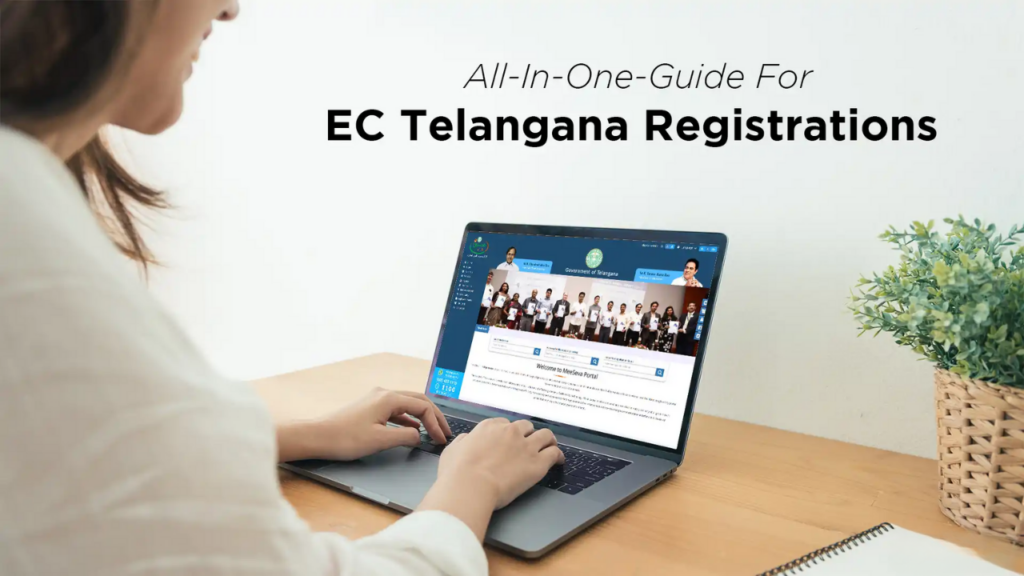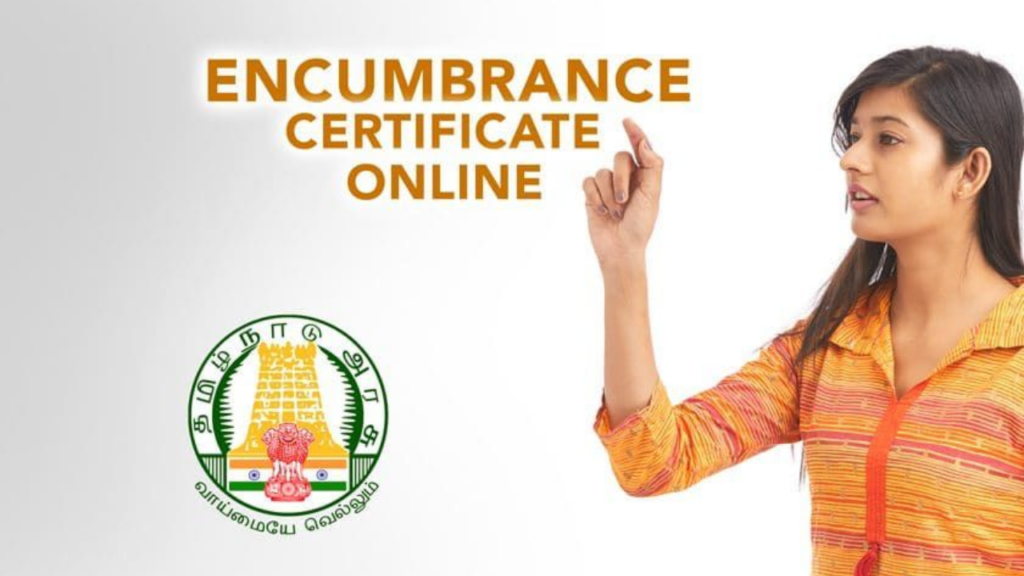How to Get Encumbrance Certificate in Telangana
An encumbrance certificate (EC) is a critical legal document in the realm of real estate. It acts as a vital piece of evidence, guaranteeing a property’s ownership status and highlighting any financial or legal claims attached to it. Simply put, it verifies whether a property is “encumbered,” meaning burdened with any liabilities. Considering the rapid real estate development in Hyderabad, learn about Encumbrance Certificate Telangana in the following blog post.
- 1 Significance of an Encumbrance Certificate
- 2 Obtaining an Encumbrance Certificate
- 3 The Importance of Encumbrance Certificate in Telangana
- 4 Navigating the EC Acquisition Process in Telangana
- 5 Key Terms to Know When Reading Your EC
- 6 Telangana’s Online EC Advantage: Checking Encumbrance Certificates Electronically
- 7 FAQs
Significance of an Encumbrance Certificate

- Property Purchase: For potential buyers, an EC ensures they are investing in a property with a clear title, free from undisclosed claims. This prevents future complications that could arise due to hidden encumbrances.
- Property Sale: Sellers can leverage an EC to demonstrate a clean ownership record, making the property more attractive to buyers and facilitating a smoother transaction.
- Loan Applications: Financial institutions like banks demand an EC when considering a loan application secured by a property. A clear EC assures them that the property serves as legitimate collateral.
Example: Imagine Ms. A is finalising the purchase of a flat from Mr. B. An EC obtained by Ms. A would confirm Mr. B’s ownership rights and reveal any outstanding dues on the property, like property taxes or maintenance charges. This transparency protects Ms. Chaturvedi from inheriting unexpected liabilities.
Unveil the 50-50 payment plan
Thus, an EC empowers sellers to showcase a property with a clear title, attracting serious buyers and facilitating a smoother sales process. A clean EC minimizes risks associated with property loans, ensuring the collateral is secure. By advising clients on the importance of ECs, real estate agents can foster trust and transparency throughout the transaction.
Obtaining an Encumbrance Certificate

- Verification of Ownership and Title: A cornerstone of any property transaction is establishing clear ownership. An EC confirms the legal owner(s) of the property, along with details like co-ownership or inheritance. This deters fraudulent transactions and ensures buyers acquire a property with a legitimate title.
- Disclosure of Encumbrances: The term “encumbrance” signifies any financial or legal claim on a property. An EC meticulously details these encumbrances, including:
- Outstanding mortgages: This unveils any existing loans secured by the property, allowing buyers to factor in potential liabilities and negotiate the purchase price accordingly.
- Ownership: It confirms the current legal owner(s) of the property.
- Previous Transactions: It provides a record of past sale deeds and ownership changes.
- Unpaid taxes: Delinquent property or maintenance charges can surface through an EC, preventing buyers from inheriting unforeseen financial burdens.
- Legal disputes: The EC reveals any ongoing legal battles associated with the property, such as inheritance conflicts or boundary disagreements. This knowledge empowers buyers to make informed decisions and potentially avoid properties embroiled in litigation.
- Facilitating Loan Approvals: For property buyers seeking loans, particularly those with the property as collateral, an EC is a mandatory document. A clear EC assures lenders that the property has a clean title and serves as a reliable security for the loan.
- Enhancing Marketability: Sellers can leverage an EC to demonstrate a transparent and hassle-free transaction. A clear EC positions the property favorably in the market, attracting potential buyers who value secure and unencumbered ownership.
Example: Consider Ms. A, who intends to purchase a new apartment. By obtaining an EC for the property, she can verify that Mr. B, the seller, is the sole owner and the property is free from any outstanding mortgages or legal disputes. This empowers Ms. Chaturvedi to negotiate a fair price and proceed with the purchase with confidence.
The Importance of Encumbrance Certificate in Telangana

Telangana, like most Indian states, mandates ECs for various real estate dealings, including:
- Property Purchase: An EC empowers buyers to verify the seller’s ownership rights and identify any outstanding dues like property taxes or maintenance charges. This transparency prevents unexpected liabilities from surfacing after the purchase.
- Property Sale: Sellers can leverage a clean EC to demonstrate a clear title, making the property more attractive to potential buyers. This facilitates a faster and more hassle-free sales process.
- Loan Applications: Financial institutions in Telangana require an EC when considering a loan application secured by a property. An EC assures them that the property serves as legitimate collateral.
Example: Imagine Mr. B is interested in purchasing a plot of land from Ms. A in Hyderabad. By obtaining an EC for the plot, Mr. B can confirm Ms. A’s ownership and uncover any potential liabilities like unpaid property taxes. This knowledge empowers Mr. B to make an informed decision about the purchase.

1. Offline Method:
- Visit the nearest Sub-registrar’s office where the property is registered.
- Collect Form 22, the application form for encumbrance certificates.
- Fill out the form with details like the property’s registration district, sub-division, and plot number.
- Attach necessary documents like the applicant’s ID proof and property address details.
- Submit the completed application form along with the requisite fee, which can vary depending on the property value.
- The Sub-registrar’s office will process the application and issue the EC within a timeframe typically ranging from a few days to a weeks.
2. Online Method:
- Visit the Meeseva Portal: https://ts.meeseva.telangana.gov.in/meeseva/home.htm.
- Navigate to “Government Forms”: On the homepage, locate the “Government Forms” section.
- Select “Meeseva Services”: Within the “Government Forms” section, click on “Meeseva Services” to view a list of available services.
- Choose “Encumbrance Certificate”: Under the “Registration” category, find and select “Encumbrance Certificate.”
- Download the Application Form: The portal will provide a downloadable application form for the EC.
- Fill Out the Application Form: You can either complete the form electronically or print it, fill it manually, and scan a copy for online submission. The form typically requires details like the property’s registration district, sub-division, and plot number.
- Attach Required Documents: Scan and upload copies of the required documents, which may include your ID proof and property address details.
- Pay the Fee: The portal will offer a secure online payment gateway for processing the application fee. The fee structure can vary depending on the property value.
- Submit the Application: Once you’ve completed all sections, reviewed them for accuracy, and attached the necessary documents, submit the application electronically.
- Track the Status: The Meeseva portal allows you to track the progress of your application using the reference number provided upon submission.
- Download the EC: Upon approval, the EC will be available for download on the Meeseva portal.
Key Terms to Know When Reading Your EC

- Grantor/Grantee: The party selling/acquiring the property, respectively.
- Mortgage: A loan secured by the property.
- Lease: A legal agreement granting temporary possession of the property.
- Lis Pendens: A notice of a pending lawsuit concerning the property.
Beyond the Basics: Seeking Professional Help
- Complex Encumbrances: If your EC reveals intricate encumbrances like multiple mortgages or ongoing legal disputes, consulting a real estate lawyer can provide valuable guidance.
- Unclear Information: In cases where the EC contains ambiguous information or discrepancies, a lawyer can help interpret the details and ensure clarity.
- High-Value Transactions: For high-value property deals, involving a lawyer throughout the transaction process, including reviewing the EC, is a wise decision to safeguard your investment.
Telangana’s Online EC Advantage: Checking Encumbrance Certificates Electronically
- Convenience: Gone are the days of visiting government offices. The Meeseva portal allows you to submit your application and access your EC from the comfort of your home or office, 24/7.
- Efficiency: The online process streamlines the application process, potentially leading to faster turnaround times compared to the traditional offline method.
- Transparency: The online portal provides a clear and user-friendly interface, guiding you through each step of the application process.
- Cost-Effectiveness: While there is a processing fee associated with obtaining an EC, online applications may offer slight cost advantages due to reduced administrative overhead.
FAQs
An EC focuses on the legal and financial liabilities associated with a property, while a sale deed serves as a legal document that transfers ownership rights from seller to buyer.
The timeframe covered by an EC can range from 13 to 30 years, depending on the state.
Technically, yes. However, the buyer must be aware of the encumbrances and factor them into the purchase decision. In some cases, the seller may clear the encumbrances before the sale.
An EC is not legally mandated, but it is highly recommended for both buyers and sellers to ensure a safe and secure property transaction. Financial institutions will require an EC when approving a loan secured by a property.
The required documents may vary by state, but typically include a copy of the applicant’s ID proof (Aadhaar card, PAN card, etc.), property address details (registration district, sub-division, plot number), and the registration fee.
The timeframe for obtaining an EC can range from a few days to a couple of weeks, depending on the efficiency of the issuing authority.
While ECs don’t have a formal expiry date, their validity weakens over time as they may not reflect recent encumbrances. It’s recommended to obtain an EC as close to the transaction date as possible.
The fee varies depending on the property value and can range from a few hundred rupees to several thousand rupees.
Yes, the Meeseva portal allows you to track the status of your application using the reference number provided upon submission.
This doesn’t necessarily disqualify the property from purchase. However, you should factor these dues into the negotiation process and ensure they are cleared before finalizing the transaction.
While an EC offers a snapshot of the property’s legal and financial status at the time of issuance, it’s advisable to obtain the EC as close to the transaction date as possible to minimize the risk of missing recent encumbrances.













